Whether downloading the latest blockbuster movie, an e-book, or work-related documents, getting files online has become important to most of us. But here’s the thing — as fun as it seems to download your favorite content for free, torrent websites have serious risks.
Most of them contain malware than can infect your device. Plus, they can land you in legal trouble, depending on the country you live. Know that the internet is not as private as you think; every search you make online can leave digital footprints that can be traced back to you.
This is where a VPN like ExtremeVPN changes the game. It protects you by making you invisible online and shields you from cyber threats like ISP tracking and malware. This guide will show you how you can download anything anonymously and safely with a VPN. Let’s start.
How to Download Files Anonymously Using a VPN – Quick Guide
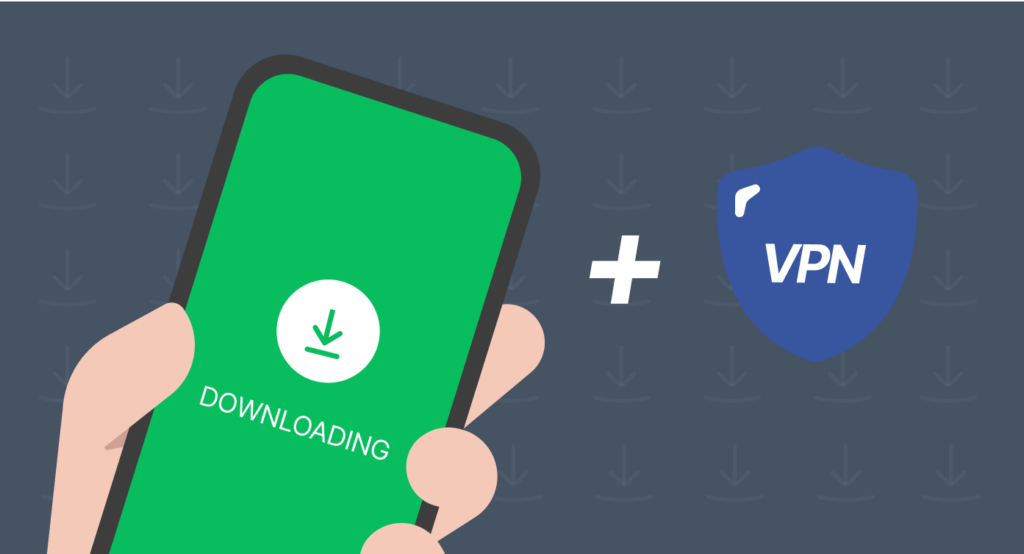
Below, we’re going to provide the step-by-step instructions from getting a VPN to downloading anonymously online:
- Sign up for a VPN by choosing a subscription plan. ExtremeVPN works best for everything related to torrenting (we also offer dedicated P2P-optimized servers).
- Download the VPN app from your device’s app store. We have apps for all operating systems, including iOS, Windows, macOS, and Android.
- Install the VPN software by following the installation instructions on the screen.
- Once completed, launch the app and log in with the credentials you signed up with.
- Select a location that is optimized for safe file downloading. For example, Switzerland.
- Activate the VPN by clicking on the Connect button at the center of your VPN app.
- You can now enjoy browsing and downloading anonymously.
Downloading Anonymously Using VPNs on Torrents and P2P Networks
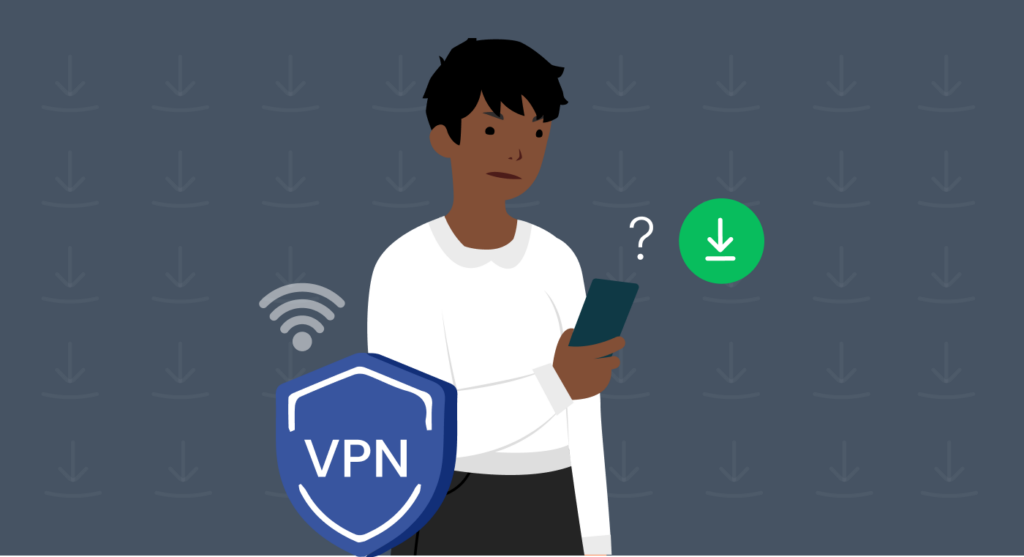
Anonymity is more of a necessity than a luxury when it comes to downloading files using torrents and P2P networks. This is because, without the right protection, every click could expose your identity to prying eyes like your ISP, hackers, and even copyright enforcement agencies.
But how do torrents and P2P networks work, you may ask? Well, unlike traditional file downloads, where a single server hosts the documents you want to get online, torrenting platforms use a decentralized approach.
Let us break it down for you. When you download a file using a torrent, you aren’t downloading it from a single place. Instead, your torrent client (for instance, uTorrent) connects to a bunch of other users (called peers) who already have that file, or parts of it. And while you’re downloading, your computer is also uploading those pieces to others — it’s a two-way street.
This peer-to-peer model makes torrents fast and efficient. However, it comes with a price: your visibility. To connect with other peers, your IP address will be shared across the network. In other words, anybody downloading the same file as you can see your location.
Why it is Important to Stay Anonymous When Downloading Torrents
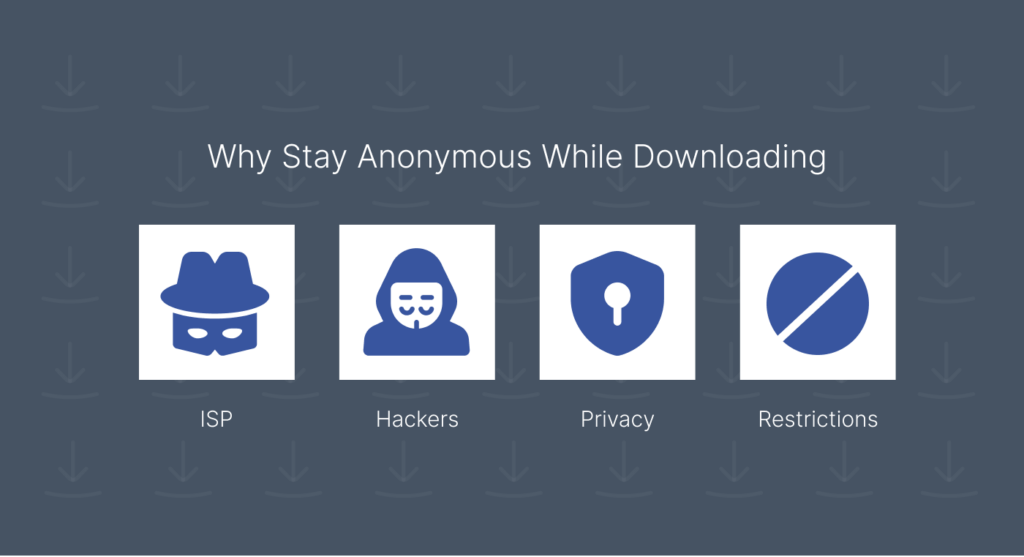
P2P file sharing without a VPN is like opening your front door wide to criminals or hackers. Below are some reasons why you should stay invisible when downloading files from torrents or P2P networks.
- To prevent ISP throttling. Your Internet Service Providers mostly monitor your online activities. Not just that, they slow down your connection if they detect heavy downloads. Why? It’s a typical traffic control practice to manage bandwidth usage.
- To protect yourself from hackers and malware. Since torrenting leaves your digital identity visible, cybercriminals can exploit it to hack your phone, track your location, or steal personal information. They could also infect your device with malware, or viruses, or ask for ransomware.
- To prevent legal consequences. Many governments and ISPs often impose geo-blocking, preventing access to certain torrenting websites (for example, RARBG is restricted in several countries). If you get caught using the platforms in restricted locations, you could face serious trouble. In Europe, individuals can be imprisoned for 4 years or fined up to €400,000 due to copyright violations. Hence, it’s best for you to stay anonymous.
How VPN Secures Your Torrenting
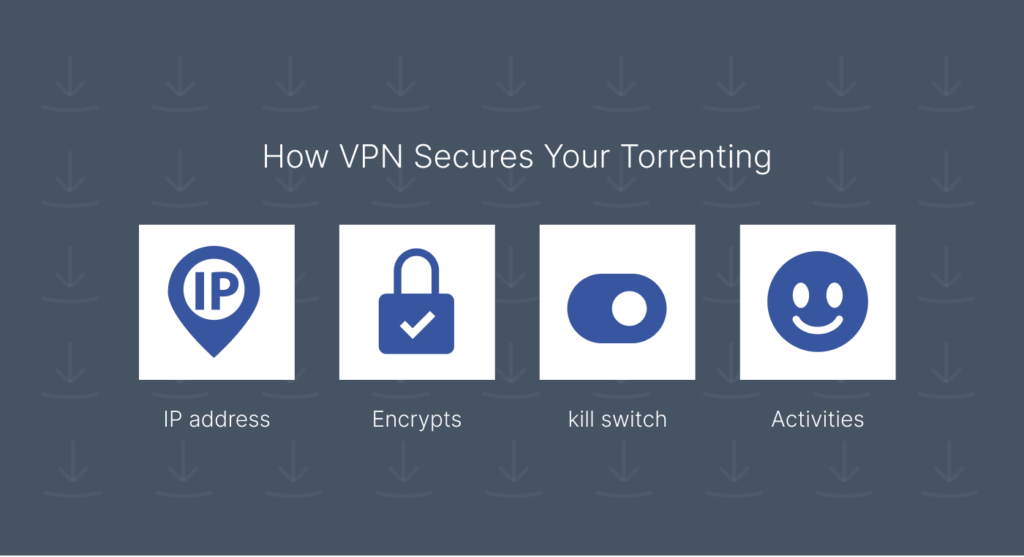
The phrase, “It is better to be safe than sorry,” couldn’t be more accurate when it comes to torrenting. Thankfully, a VPN is like your personal shield that will keep you safe when downloading files. Here’s how:
- It hides your IP address. Your IP address is like your digital identity that makes your device traceable whenever you come online. A VPN like ExtremeVPN conceals your actual address and makes it look like you are in a different region or country. You could be staying in the US and get an IP address from the UK. This way, you will be protected against unwanted snooping and any bad actors that may want to take advantage of your data.
- It encrypts your data. If you torrent without encrypting your data, it will be transmitted in a plain form over the internet that literally anybody can read. A VPN offers top-notch protection, using advanced standards such as AES-256 encryption to make your information hard to discover. Even if someone were able to intercept your files, it would be virtually useless to them.
- It offers an automatic kill switch. While most VPN connections are stable, there is a slight risk of a network drop. If that occurs, your real IP may be leaked. ExtremeVPN offers a kill switch that immediately cuts off your internet access if it breaks. That way, your browsing activity remains hidden even during technical hiccups.
Tips to Ensure Safety and Privacy When Downloading Online
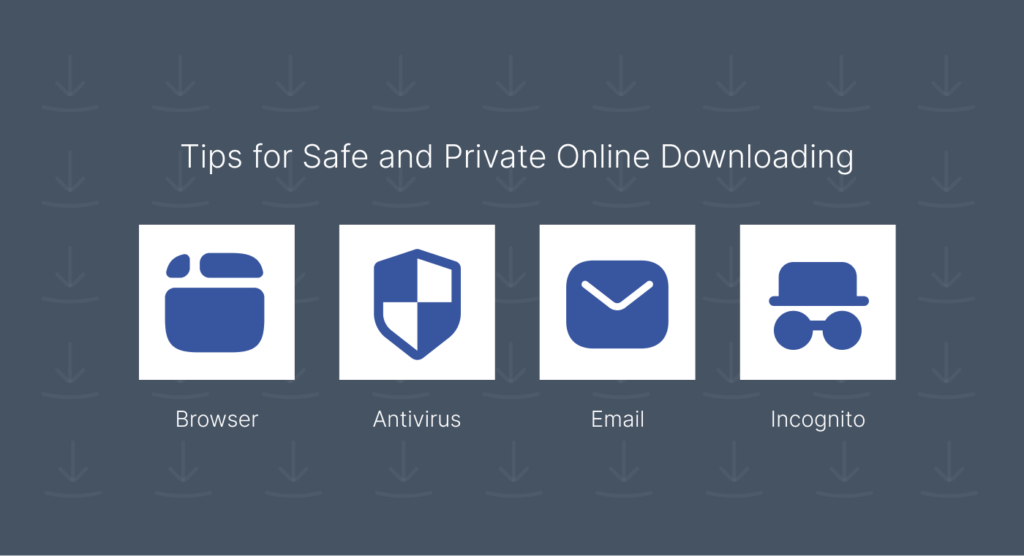
As explained earlier, using a VPN is the best way to protect yourself when downloading files from the internet. Regardless, there are additional ways to keep your online activities secure and protect yourself from cybercrimes. These include:
- Opt for a privacy-focused browser: Standard browsers such as Chrome or Edge often store your browsing history and IP address. Switching to a secure one (such as Brave or Tor browser) can boost your anonymity. When using them, be sure to disable any unnecessary plugins or extensions that can leak your information.
- Use a reliable antivirus: You could do everything right and still download corrupted files from torrents. That’s why a strong antivirus is helpful in helping you scan and flag malicious files before they cause any harm to your device. Look out for antivirus software that has real-time protection and robust firewall features, like Total AV.
- Set up anonymous email accounts: Sometimes, you may need to sign up or verify your email address to access certain files. Instead of using your primary email, consider creating an anonymous one using platforms such as ProtonMail or Tutanota. These services don’t log your data and prioritize users’ privacy.
- Enable incognito or private browsing: Although it is not foolproof, incognito mode or private search can help reduce the amount of personal data stored on your browser. However, you must know this — your ISP and other third parties will still be able to see your private session as well as the websites you visit.
- Carry out anonymity test: Sites like IPLeak.net can tell if your real web address or DNS information is exposed. You can regularly use them to test your VPN and see if it is functioning properly or not. Moreover, they can help you identify security gaps in your connection before malicious people exploit them.
When is Anonymous Downloading Considered Illegal?
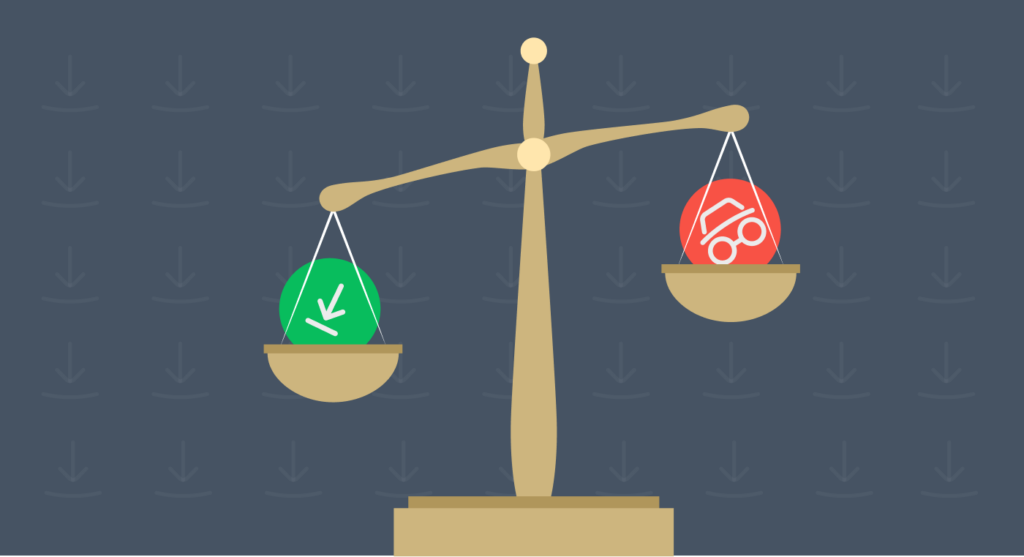
Here’s the thing. The illegality of anonymous downloading depends on several factors, such as your location and the kind of content you want to download. Even so, accessing protected material without proper authorization is generally illegal, regardless of whether you are doing it secretly or not.
Movies, music, software, and ebooks are usually protected by their creators or publishers. As such, saving a pirated movie or cracked software is copyright infringement.
Even if you use a VPN to download copyrighted files, it still doesn’t make your action legal. Think of it this way, the producers and studios want to do business — they spend a lot on creating content, and they rely on sales or licenses to earn back
Thus, we don’t recommend downloading harmful or illegal material. In many countries, it’s not only discouraged, it’s a crime (we’ll talk about it in the coming section).
That said, not all private downloading is against the law. Open-source software, free eBooks, or files distributed under Creative Commons licenses are perfectly fine to download, even if you’re keeping your identity under wraps. In fact, many people—like journalists or activists in restrictive countries—use VPNs to bypass censorship and protect themselves, not to break the rules.
Torrenting Across Different Countries
Torrenting itself isn’t illegal because it’s simply a method of sharing files. But, as with many things in life, it’s how you use it that matters. Also, where you’re located can make all the difference.
For example, in Switzerland and Spain, you are free to make copies of copyrighted works for your own personal use. In contrast, a minor breach of patent law can lead to severe legal consequences and financial penalties in the United States and Germany.
There are less strict rules in countries like Russia and Brazil. Although this doesn’t make torrenting pirated material legal, the consequences are simply lesser. Conversely, in places like Japan, the stakes are higher, as some penalties can include jail time.
Canada focuses its penalties on P2P sharing more on commercial piracy than individual downloads. Hence, we recommend you to research the laws of your country before torrenting.
Using Torrents and P2P Software
Torrents and P2P software are legal to use as long as they’re for ethical and lawful reasons. This decentralized technology has numerous legal applications, such as sharing open-source software, public domain movies, and large files like system updates. However, torrents have notoriously been used to share pirated content.
Popular sites such as The Pirate Bay and Kickass Torrents or alternatives usually contain illegal content. Also, the risk of using them goes beyond patent infringement because they are riddled with phishing ads and malware.
Thankfully, legitimate platforms like BitTorrent exist. In fact, companies and organizations, including Blizzard Entertainment and Linux distributions, use them to share software and game updates. To stay on the safe side, always torrent on trusted platforms and use a VPN when you are not sure about the content’s legal status.
ExtremeVPN – The Best VPN for Secure and Anonymous Downloading
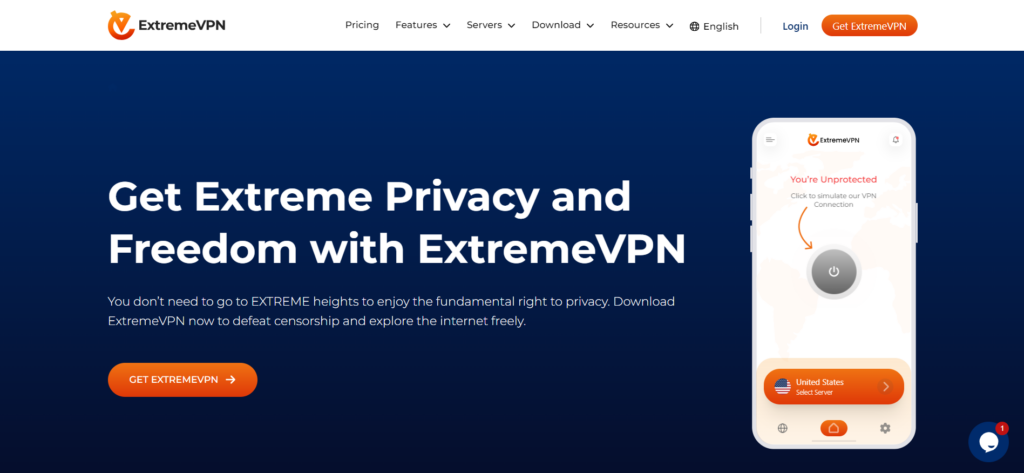
ExtremeVPN is your go-to option when it comes to securing your identity while downloading. It provides the perfect balance of privacy, performance, and usability. A notable feature is its no-logging policy, which ensures that your browsing and downloading activities are never stored and shared.
ExtremeVPN also has AES-256 encryption, the gold standard in online security, to protect your data from prying eyes. So, if your data were intercepted, it would be extremely difficult to decrypt it. For speed, our VPN comes with P2P-optimized servers for lightning speeds and a seamless surfing experience.
ExtremeVPN further offers an automatic kill switch that covers your network’s identity if the VPN connection unexpectedly cuts. The split tunneling feature allows you to decide which apps or website traffic will route through the VPN, letting you use services like your banking apps without interruptions. Furthermore, the DNS and IP leak protection prevents third parties from seeing your DNS or IP requests.
Should I Use Free VPNs for Torrenting?
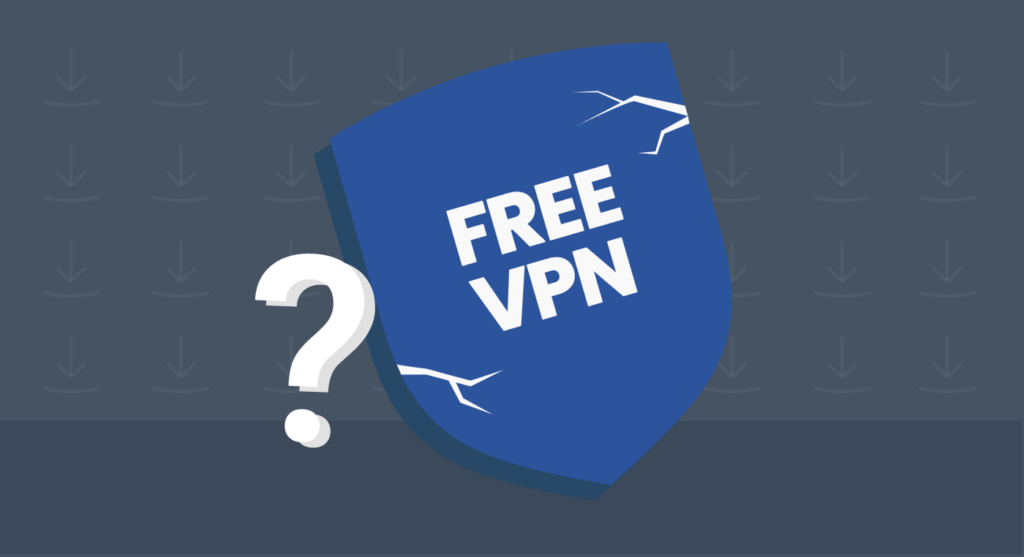
Free VPNs sound appealing, but they come with potential risks and limitations. Here are some factors that disqualify free VPNs for safe and reliable P2P sharing:
- Logging concerns – While VPNs are meant to protect your privacy, many free options do the opposite by logging your data. In other words, they track the websites you visit, the files you download, and the time you spend online. These services also sell this data to third parties and your ISPs for marketing and cross-site tracking (it’s the only way they earn).
- Bandwidth limitations – As free VPNs don’t charge users, they come with bandwidth and data caps that restrict your torrenting activities. Moreover, they often throttle your download speed to conserve their servers’ resources, leaving you with painfully slow connections.
- Potential security vulnerabilities – Unlike paid VPNs, the free ones may lack security measures like a kill switch, advanced firewalls, and robust encryption. Additionally, these free tools may not mask your DNS request properly, meaning that your ISP can still see your digital footprint.
- Restricted torrenting features – Some free VPNs completely block torrenting, and some explicitly state that P2P sharing is not allowed in their terms and conditions. This is often due to their lack of adequate infrastructure to handle the demands of torrenting.
Alternative Methods for Anonymous Downloading
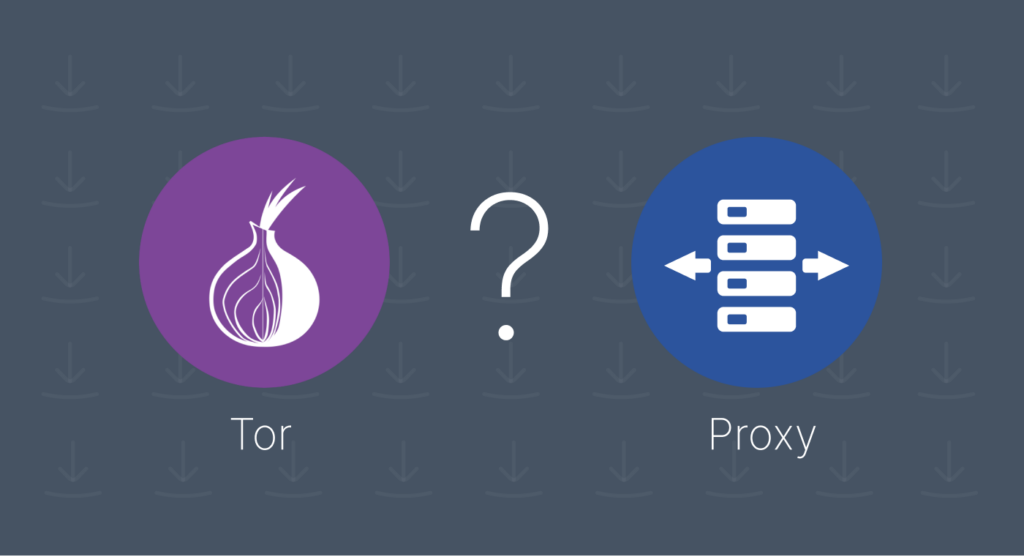
If you do not want to use a virtual private network, here are some good alternatives you can try.
The Tor Network
The Onion Router, or Tor, can disguise your IP address to help you hide your online presence. To achieve this, Tor routes your internet through various servers (nodes). However, the greatest drawback of using this tool is that it is not particularly suitable for torrenting.
Tor also slows down your connection speed, as it uses several layers of encryption. So, your downloads might take longer than you think (sometimes connection can also be terminated and the download can stop, leaving you frustrated). These reasons make it almost impractical to download large files.
Furthermore, it can strain your connection because it’s meant to operate in censored environments like the dark web rather than for transferring large amounts of data.
Proxy Servers
Proxy servers are like intermediaries that make connections on your behalf to protect your identity. They pass your connection through a separate server before forwarding your request to its destination.
Even though they can mask your web address, they do not have strong end-to-end encryption like VPNs. For this reason, they are less secure when it comes to torrenting.
There are two main categories of proxies (HTTP proxies and SOCKS proxies). HTTP proxies are ideal for web browsing. On the other hand, SOCKS are better for torrenting because they can handle different types of traffic. Unfortunately, they still pose the risk of interception because they do not encode your data.
